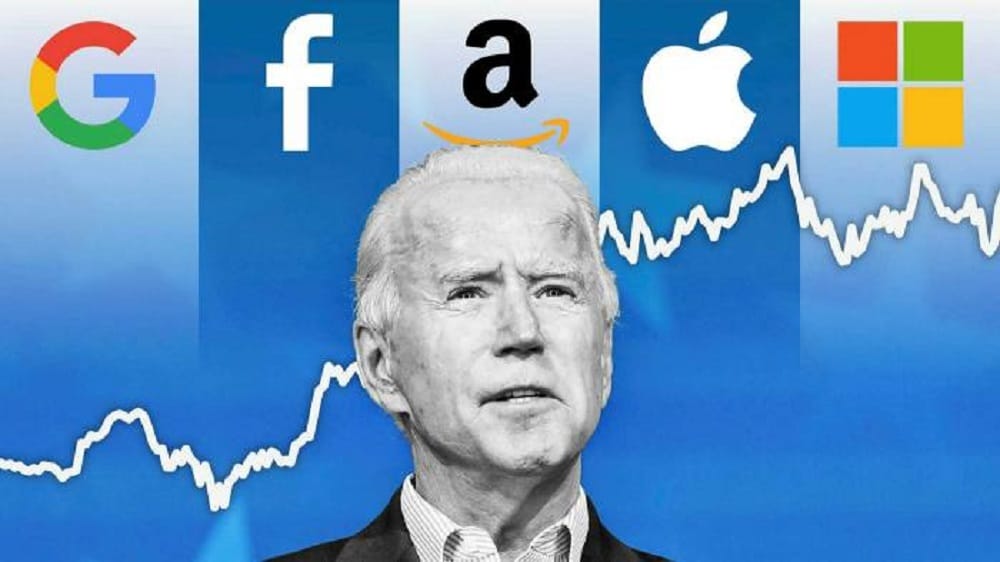EU Seeks to Trust-Bust Amazon, Biden’s Agenda on Tech Innovation and Research, China Wins Some Aspects of 5G Race
The European Union on Tuesday charged Amazon with antitrust violations for abusing the size and scale of its online platform to entice small merchants to sell on Amazon, use nonpublic data to spot popular products, and then sell the products at a lower price. Amazon, which denies any wrongdoing, now

The European Union on Tuesday charged Amazon with antitrust violations for abusing the size and scale of its online platform to entice small merchants to sell on Amazon, use nonpublic data to spot popular products, and then sell the products at a lower price.
Amazon, which denies any wrongdoing, now has the chance to respond to these preliminary charges. Indeed, they could be dropped if a settlement is reached; although more charges could also be added.
The EU has spent two years investigating Amazon, with allegations based on data from more than 80 million transactions and 100 million products. They are also investigating Amazon’s “Buy Box,” a feature that allows customers to make purchases more quickly.
EU authorities in Brussels have argued that Amazon uses bundling, app fees, and hoarding data as tools in its anticompetitive arsenal.
Margrethe Vestager, European Commission vice president, has argued that companies like Google, Facebook, and Amazon are essentially micro-economies that set rules and policies with little transparency and determine the fate of millions of other businesses that are can’t help but follow along.
Information Technology and Innovation Foundation focuses on Biden’s approach to R&D
President-elect Joe Biden is likely to increase spending, regulation, and multilateralism in technology, regulation, and trade, according to an analysis by the Information Technology and Innovation Foundation (PDF) published on Monday.
Biden has called for increases in public investment in education and training, rural broadband, closing digital divide, more research and development and clean energy. These areas have lacked investment for decades, according to the report.
Biden proposed energy funding as part of a $300 billion overall expenditure for research and development over four years. He has said he wants the U.S. to achieve net-zero emissions by 2050 and to decarbonize its electricity grid by 2035.
The new administration will likely face pressure from progressives to increase business taxes and impose strict regulation on the information communication and technologies sectors. The burdens of this policies could outweigh the benefits of increased public investment in innovation, said ITIF.
The administration is likely to reverse some of the Trump administration’s regulatory roll-backs and urge Congress to undertake significant legislative reform of competition authorities for antitrust enforcement, especially of large tech platforms. At the same time, he will likely step up enforcement and bring more federal antitrust cases.
China has won 5G battle in coverage and advancement
The Wall Street Journal reports that China has won the 5G battle in coverage and advancement.
So far China has more 5G subscribers in total and per capita than the United States, as well as more smartphones, at lower prices, with better coverage, said Wayne Lam, director of research at CCS Insight. On average, Chinese 5G devices cost $458, in the second quarter of this year, compared to $1,079 in the U.S., according to Canalys.
While the United States has some areas with 5G faster than China running on millimeter wave frequencies in hot spots by stadiums, Chinese coverage is more ubiquitous and consistent.
Edison Lee, a Hong Kong-based telecom analyst at investment bank Jefferies, said that China is further ahead in build out. China currently has 690,000 5G base stations open and operational across the country, while the U.S. has only 50,000, according to Handel Jones, chief executive of International Business Strategies Inc., a research firm.
China’s lead could be attributed to the aggressive targets Bejing has set for Huawei, ZTE, and in smaller part Ericsson, which attributed their 7 percent rise in revenue to their Chinese contracts in the third quarter.
While China may be ahead in coverage, their network only covers 8 percent of the population and is slower than networks in places like Switzerland and South Korea.
China is also in the midst of rolling out 5G’s life changing applications such as self-driving cars and remote surgeries, however their lead in fiber-optic infrastructure deployment could set them ahead in those areas as well.








